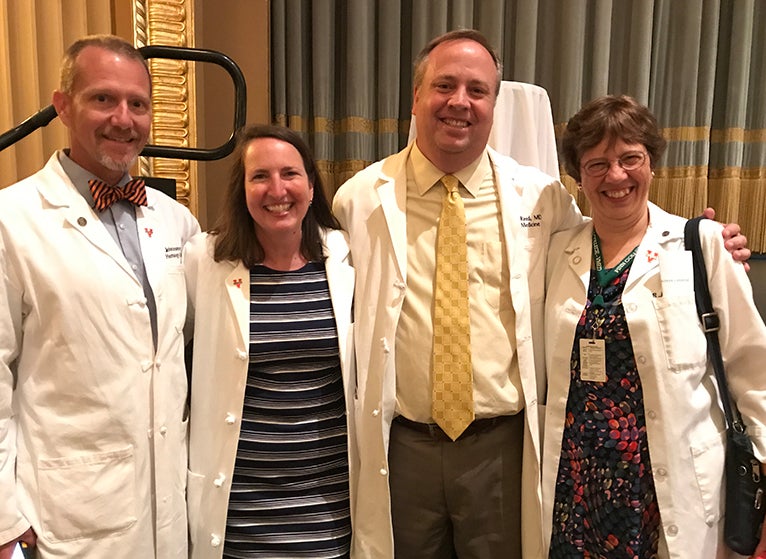
Deans of Student Affairs (l-r): Dr. John Densmore, Dr. Meg Keeley, Dr. Sean Reed, and Dr. Christine Peterson
Eight years ago, we instituted a new curriculum for the School of Medicine (SOM). With that, we also created learning communities, longitudinal-support, mentoring and curricular structures to help our students be successful. The four learning communities, called Colleges (Dunglison, Hunter, Pinn, Reed), each have their own Dean of Student Affairs (Drs. Meg Keeley, John Densmore, Christine Peterson, Sean Reed, respectively). All students are placed in one of the Colleges at matriculation. Each College is divided into groups of six, with each group assigned a physician coach and a non-physician co-mentor, such as a nurse, pharmacist, basic scientist, or chaplain. The small groups meet weekly in the two years for their clinical skills course. Coaches meet with students individually four times a year to monitor and foster their clinical and professional development.
Students find community within their class year, within their College, with those who share medical interests, and within their small groups. A Big Sibling program provides an opportunity for upper-class students to advise and encourage more junior students. And, to ensure this all goes according to plan, there is a feedback loop of communication from the frontline coaches to the deans.
Dividing the students into Colleges (or, as the students see it, “teams”) stirred their natural competitive spirit and they’ve gone into full Harry Potter mode. We used to have a simple Field Day competition during orientation. Now, all year long, the Colleges vie for the gift from the Class of 2015 — the College Cup — which they can win for their College by earning points via intramurals or academic challenges. They have College T-shirts, lanyards, and the Class of 2018 even knitted Harry Potter scarves for their Deans as a Match Day gift.
What started as an advising structure has evolved into a framework for several functions. Success with the learning-communities framework has allowed us to do other things, like pairing all medical students with a patient whom each student follows through several years of medical school. This is being done via the Patient Student Partnership program, which we posted about here.
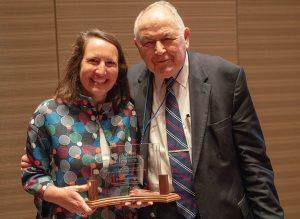
Dr. Meg Keeley with Dr. Ron Arky, receiving the Learning Committee Institute’s Ron Arky Award.
For her hard work and continued efforts in developing learning communities, not only at the School of Medicine but across the country, Meg Keeley, MD, Assistant Dean for Student Affairs (Dunglison), Professor of Pediatrics, and Director of the Fourth Year Program, recently received The Ron Arky Award from the Learning Communities Institute (LCI). This award was created in honor of Dr. Arky, Professor of Medicine and Director of the Francis Peabody Society at Harvard Medical School, and is given to luminaries in the field “for significant contributions to the development of learning communities in medical education.”
Meg says, “The learning-community movement has really taken off. We know this because the LCME [Liaison Committee on Medical Education] now asks about it on their surveys!” This award was not only a huge honor for her, but extra special as during Dr. Arky’s internship he worked with her late grandfather, a general practitioner, in Cambridge, Massachusetts. Small world, is it not?
The LCI has a student council within the institute. I am incredibly proud to share that, for three years in a row, a UVA student was elected to be the national co-chair of that student council; first Eve Privman (MSTP18), then Meredith Johnson (SMD19), and now Chris Kaperak (SMD20). (Also, of note: Former UVA medical student Kendall Brooks (SMD15), now a surgeon, designed the LCI logo.)
We are frequently contacted by other schools and asked to present at national meetings about the development of our learning communities. How have we created, supported, and sustained these learning communities? Our framework is particularly unique as our students rotate through their clerkship year as a College which has extended the model of relationship-based learning into clinical training. Our peers are impressed with our success with this aspect and it sets us apart as a national model.
Please join me in congratulating Dr. Keeley for her award and in accepting my gratitude to all faculty and staff who make the School of Medicine a learning community.
R.J. Canterbury, MD, MS, DLFAPA
Wilford W. Spradlin Professor
Senior Associate Dean for Education
Filed Under: Media Highlights, Student

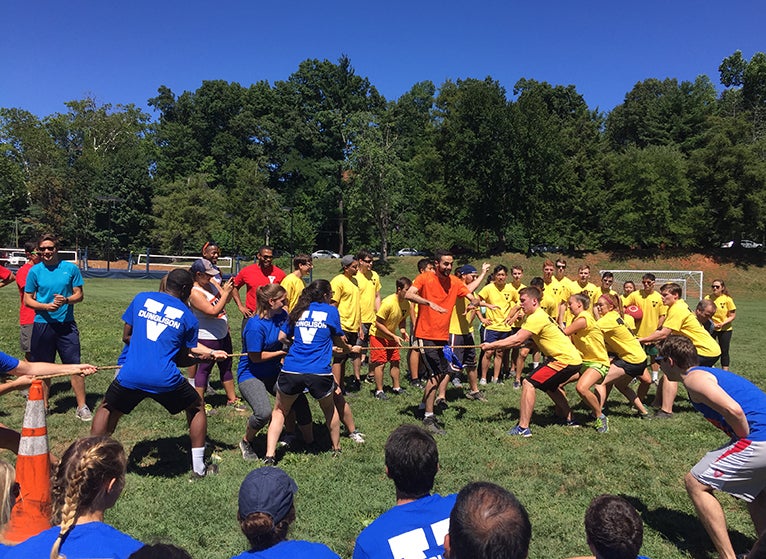
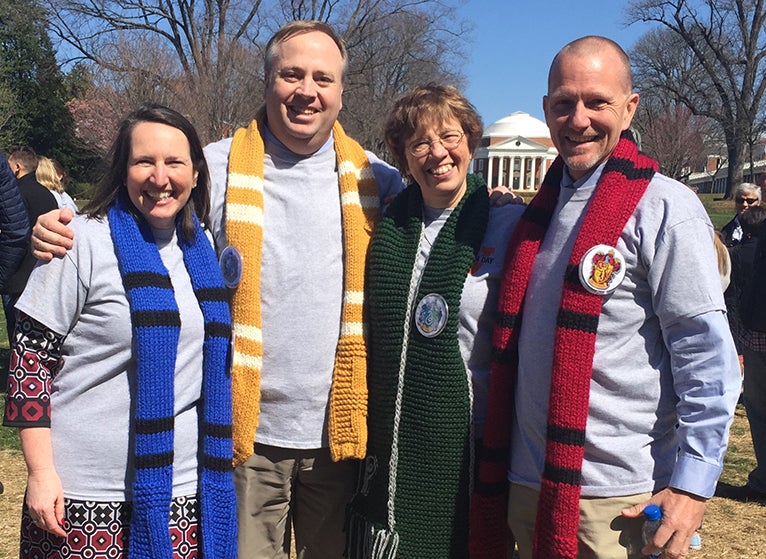
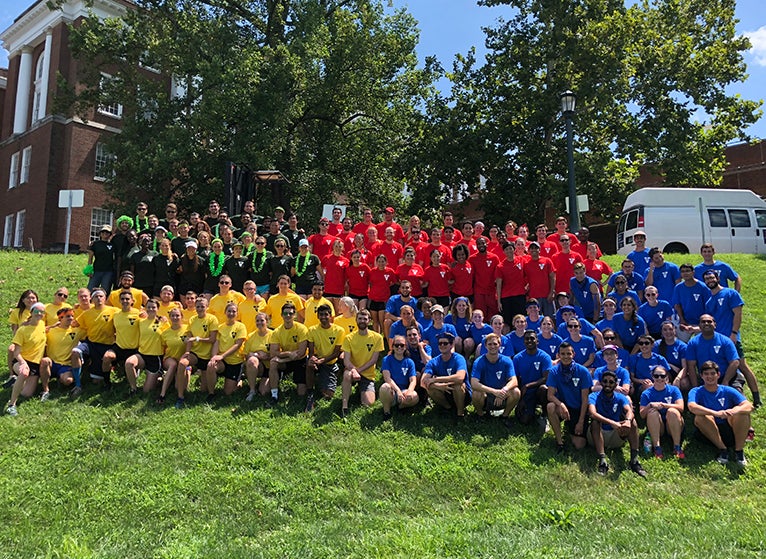
Comments